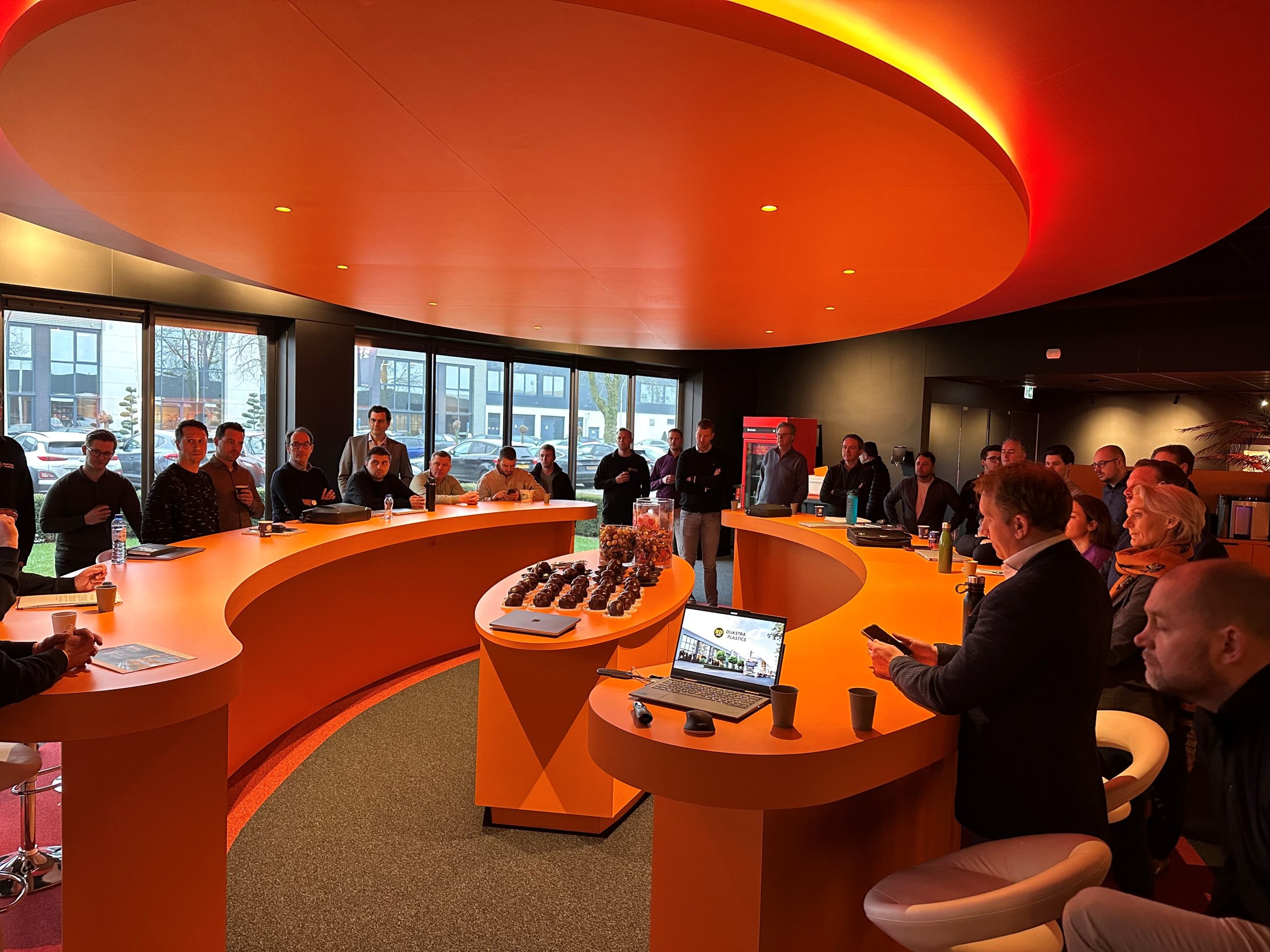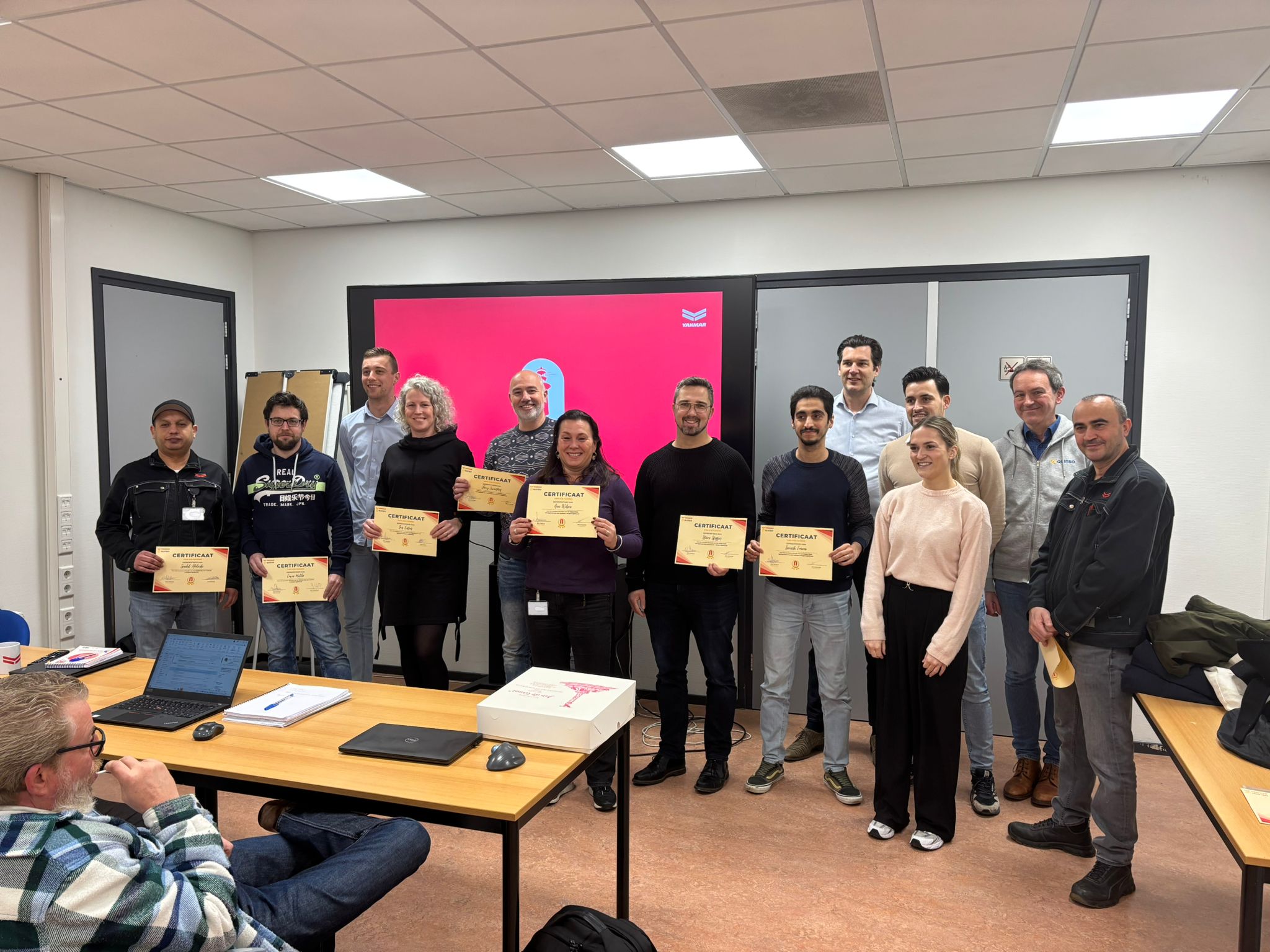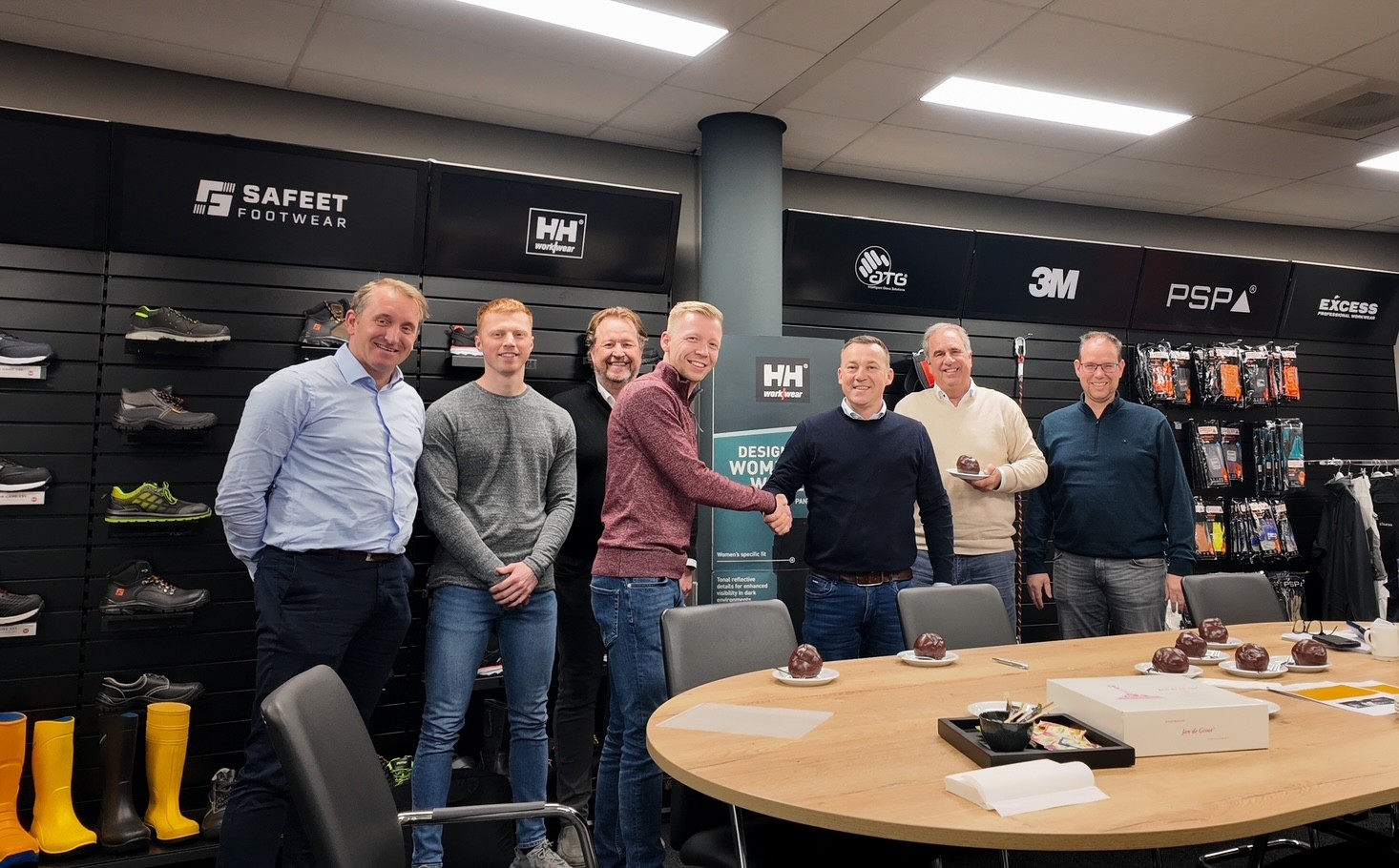 Industry 4.0. In late 2016, I was invited to join other Dutch manufacturing experts to discuss this topic. The result? A fascinating conversation about the usefulness and necessity of IoT, sensors and big data on the production floor. What we discussed then is more relevant now than ever. Therefore, I am happy to share with you the blog that Marc Bruurmijn wrote at the time. I would say: get inspired. And above all, don’t be impressed by expensive terms or biggest future plans. It’s really just a matter of getting started.
Industry 4.0. In late 2016, I was invited to join other Dutch manufacturing experts to discuss this topic. The result? A fascinating conversation about the usefulness and necessity of IoT, sensors and big data on the production floor. What we discussed then is more relevant now than ever. Therefore, I am happy to share with you the blog that Marc Bruurmijn wrote at the time. I would say: get inspired. And above all, don’t be impressed by expensive terms or biggest future plans. It’s really just a matter of getting started.
Below is Marc Bruurmijn’s report:
Industry 4.0: what are the possibilities?
Discussion leader Jos van Erp, affiliated with the FME, immediately dives into the depths of the subject: “What can an organization actually do with Industry 4.0?” Marc Bruurmijn of SAP points out that many organizations are already collecting data. Data from machines and from the production process, for example. When you aggregate this data, you can use the insights from it to better direct your production process. This allows you to produce more efficiently and also more flexibly.
‘Smarter production’ is what Geuko Bosker of itelligence calls it: “So this allows you to use personnel and material in the best possible way.” Measuring is knowing, agrees Jurgen de Jong of Quinso. Automation is a first step toward Industry 4.0 and thus toward innovation. But it goes a step further, said Mark van Boxsel of Delaware: “If you manage the life cycle of your machine, then you are no longer providing a machine but a service.” And that’s really innovation in your business model.
Do we still have a choice?
Many Dutch organizations are aware of the benefits and opportunities of Industry 4.0, but are still toying with the question of whether to invest in it or not. “But,” discussion leader Van Erp wonders, “do they actually still have a choice?” Bosker doesn’t think so. “But you don’t have to be ‘4.0’ all at once, either.” De Jong adds, “Just start in small steps. Make a trial run and learn from the experience of doing this.”
However, technology is not the biggest stumbling block, is the consensus at the table. Getting people on board and the culture change that comes with it has a bigger impact. Bosker recommends using small proof of concepts, working with your staff to change mindsets.
So there is no need to change your business model overnight.
Actually, this is “just” change management, and organizations can properly apply the lessons from previous software implementations here. “Without innovative people, you have no innovations in your business,” Van Erp summarizes. “True, and I believe everyone is innovative,” Bosker adds.
Is Industry 4.0 too big for SMEs?
There is a perception that Industry 4.0 is mainly interesting and feasible for large, international players. SME organizations are orienting themselves about the possibilities of Industry 4.0, but often do not know where to start. “While smaller companies in particular have the flexibility to take full advantage of these developments because they can move faster,” Van Boxsel said. “It’s unfortunate that many SMEs mostly dwell on the challenges.”
One of those challenges is making Industry 4.0 concrete in applications in the organization. Van Erp confirmed the need for more examples of organizations successfully implementing Industry 4.0. Bosker says itelligence is working with TU Eindhoven and Fontys University of Applied Sciences to develop practical cases. Quinso and Delaware are also investing in demos that will allow you to quickly get an idea of what Industry 4.0 can do with a test setup. In addition, all parties are already active with predictive maintenance projects at customer sites.
What can Industry 4.0 mean for the Netherlands?
You see more of these examples abroad. Bruurmijn highlights the practical case where the Port of Hamburg, in collaboration with SAP, Cisco and its carriers, considered the application of Internet of Things (IoT). “Ultimately, the constant measurement of all kinds of logistics data led to the insight that the flow of goods could be arranged much more efficiently. The result? The Port’s throughput almost doubled without adding a single square meter.”
But new practical applications are also being developed closer to home. Quinso consultants, together with SAP and Interpolis, developed a smart bicycle bell that contributes to improved road safety in a short time during a so-called “hackaton.
Van Erp: “So we see that IoT is going to contribute to security and mobility, increasing our prosperity and general well-being. What is this going to mean for the Dutch economy?” Bruurmijn emphasizes that the Netherlands can once again play a major role as a “manufacturing country. “Combine our position in the manufacturing industry, our pragmatism and high-level knowledge in the Netherlands and you have a boost for Industry 4.0.”
How can we take advantage of all these opportunities?
De Jong: “I am convinced that young people play a key role in this. This is a different generation: they are ditigal natives. They look at certain things differently because they often don’t know the obstacles of the past. That’s why we actively seek cooperation with schools.” De Jong enthusiastically explains how the task force they set up with young students also keeps Quinso’s consultants themselves on their toes. The other gentlemen also recognize the role of students in accelerating the implementation of IoT. Therefore, their organizations also seek collaboration with students and schools.
Van Erp: “But there is also an existing workforce that fears their jobs will disappear. Is this justified?” Change always evokes resistance. Everyone at the table recognizes this from their experiences with IT implementations. But in these times of “lifelong learning,” change does not always have to mean job loss. Take charge of your own development and move with it, is the advice.
“Professions change,” said Van Boxsel, “but thanks to innovative applications like Augmented Reality, a specialized profession like service mechanics may become accessible to people without in-depth electronics knowledge.” Bosker emphasizes that this is a transition; professions will not disappear or change overnight. “And,” Bruurmijn adds, “Industry 4.0 also creates new opportunities in the labor market again.”
Want to know more?
Watch the series of four short videos from this roundtable discussion:
- What is Industry 4.0?
- Industry 4.0: where do you start?
- Are SMEs ready for Industry 4.0?
- What is the impact of Industry 4.0?
Would you like to exchange thoughts with me about this exciting topic and the possibilities for your organization? Nice! Contact me at jurgen.de.jong@quinso.com.



